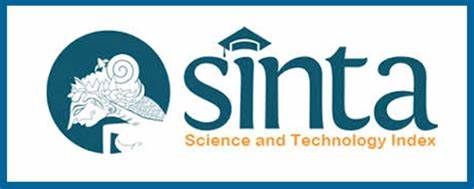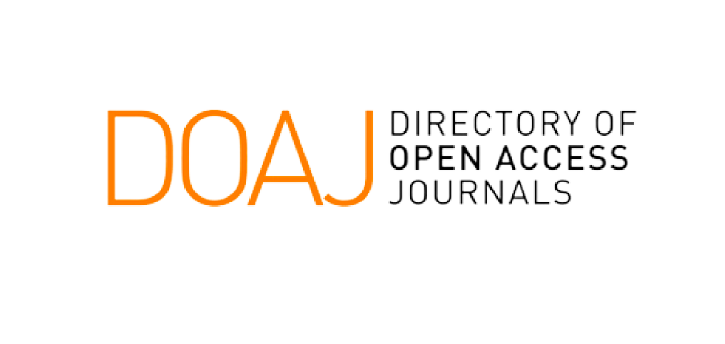CHARACTER BUILDING IN THE PERSPECTIVE OF PANCASILA: A CASE STUDY OF ISLAMIC RELIGIOUS EDUCATION STUDENTS
Abstract
The values of character building in students are a reflection of the institution in preparing future generations who have religious, tolerant, democratic and love the country’s characters. The purpose of this study is to describe character building for students, and the implementation of character building in the perspective of Pancasila. This research uses a qualitative method with a case study type of research. The results of the study illustrate that: (1) character building in students is seen in student discipline when attending lectures offline and online. In addition, student creativity when attending lectures is getting better with creative ideas, high curiosity leads students to have an attitude to ask questions and provide arguments in accordance with the experiences students have. character building for students is also seen in the responsibilities of students in submitting assignments for Pancasila Education courses in a timely manner; and (2) the implementation of character building in accordance with the perspective of Pancasila is manifested in the core values of Pancasila which are internalized in the first precept character building reflected in the behaviour of diligent worship, and tolerance between religious communities; the second precept is reflected in polite behaviour, mutual respect, and as an example; the third precept which is manifested through a sense of unity and oneness, a spirit of self-sacrifice, and love for the motherland; the fourth precept through the embodiment of always respecting the opinions of others, prioritizing deliberation for consensus, and upholding democracy; and the fifth precept through fairness in opinion, mutual welfare, and always respecting each other's self-actualization.
Keywords
Full Text:
PDFReferences
Alda, Z. S. D. Y. N. M. S. A. A. (2023). Penerapan Nilai-nilai Pancasila Dalam Pendidikan. Humantech Jurnal Ilmiah Multi Disiplin Indonesia, 2(3), 578–584.
Asbari, M., Novitasari, D., & Purwanto, A. (2022). The Character Education Based on Pancasila in the Generation Z. Journal of Community Service and Engagement ( JOCOSAE ), 2(5), 11–16.
Astalini, A., Darmaji, D., Kurniawan, D. A., & Septi, S. E. (2023). Overview the inquiry learning model : Attitudes , student characters , and student responses what ’ s the impact ? Journal of Education and Learning (EduLearn), 17(1). https://doi.org/10.11591/edulearn.v17i1.20530
Ballantyne, H., & Achour, N. (2022). The challenges of nurse redeployment and opportunities for leadership during COVID-19 pandemic. Disaster Medicine and Public Health Preparedness, 1–7.
Character Counts. (2023). The Six Pillar of Character. Drake University. https://charactercounts.org/character-counts-overview/six-pillars/
Creswell, J. W. and J. D. C. (2018). Qualitative, Quantitative, and Mixed Methods Research Designs. In Fast Facts to Loving your Research Project. Sage Publications, Inc. https://doi.org/10.1891/9780826146373.0007
Dewantara, K. H. (1961). Ilmu Pendidikan. Taman Siswa.
Dewi, W. S., & Nawawi, E. (2023). Penanaman Nilai Bhinneka Tunggal Ika dan Nilai Pancasila di SMA Negeri 2 Palembang. Jurnal Pengabdian West Science, 2(01), 87–97.
Diana, U. R. S. M. (2023). Implementasi Bhinneka Tunggal Ika dan Nilai-nilai Pancasila sebagai Identitas Manusia Indonesia di Sekolah. Jurnal Pengabdian West Science, 2(01), 14–24.
Dwipayana, A. D., Darmayanti, N. L., & Wijonarko, B. (2023). Challenges and Opportunities for Leadership and Talent Development Graduates of Cadets. ADI Journal on Recent Innovation (AJRI), 4(2), 122–127.
Dyangrosa, S., Balqis, P., & Najicha, F. U. (2022). Penanaman Nilai-Nilai Pancasila di Era Pandemi Covid-19. De Cive: Jurnal Penelitian Pendidikan Pancasila Dan Kewarganegaraan, 2(6), 1–7.
Ermann S, S. (2018). Analisis dan makna teologi ketuhanan yang maha esa dalam konteks pluralisme agama di indonesia. Jurnal Teologi Cultivation, 2(1), 290–303.
Fitriana, R., Nuraini, L., & Brawijaya, U. (2022). Filosofi Kendo Masyarakat Jepang: Adaptasi Dan Re-Modeling Pendidikan Dan Pembangunan Karakter Bagi Generasi Muda Di Indonesia. WASKITA: Jurnal Pendidikan Nilai Dan Pembangunan Karakter, 6(2). https://doi.org/10.21776/ub.waskita.2022.006.02.8
Ginting, K. S. (2023). Mengikis Sikap Superioritas Beragama untuk Mencapai Persatuan Indonesia. Jurnal Salvation, 3(2), 142–151. https://doi.org/10.56175/salvation.v3i2.76
Hakim, A. L., & Yulianto, W. D. (2017). Revolution of Mental in the Perspective of Pancasila Education. WASKITA: Jurnal Pendidikan Nilai Dan Pembangunan Karakter, 5(1), 31–44. https://doi.org/10.21776/ub.waskita.2021.005.01.3
Herwin, H. R. N. (2021). Measuring Students’ Curiosity Character Using Confirmatory Factor Analysis. European Journal of Educational Research, 10(2), 773–783. https://doi.org/10.12973/eu-jer.10.2.773
Hidayatullah, S. (2006). Notonagoro dan Religiusitas Pancasila. Jurnal Fulsafat, 39(1), 34–41.
Jannah, F. R. F. (2018). Strengthening The Pancasila Character Values in Forming The Character of Pancasilais Generation. Advances in Social Science, Education and Humanities Research, 274(Xviii), 77–80.
Kaelan. (2013). Negara kebangsaan pancasila: Historis, kultural, filosofis, yuridis, dan aktualisasinya. Paradigma.
Lickona, T. (1996). Eleven Principles of Effective Character Education. Journal of Moral Education, 25(1), 93–100. https://doi.org/10.1080/0305724960250110
Miles, M. B., Huberman, A. M., & Saldaña, J. (2018). Qualitative data analysis: A methods sourcebook. Sage publications.
Notonagoro. (1976). Beberapa Hal Mengenai Falsafah Pancasila. Pantjuran Tujuh.
Raychaudhuri, A. (2019). Quantitative methods for qualitative variables in social science: An introduction. In Research Methodology for Social Sciences (pp. 253–268). Routledge India. https://doi.org/https://doi.org/10.4324/9780367810344-13
Rianto, H. (2016). Implementasi nilai kemanusiaan yang adil dan beradab di lingkungan sekolah. Sosoal Horizon: Jurnal Pendidikan Sosial, 3(1), 80–91.
Rohmah, S., & As-suvi, A. Q. (2022). Character-Building for Law Students: Exploring the Satjipto Rahardjo’S Thoughts. WASKITA: Jurnal Pendidikan Nilai Dan Pembangunan Karakter, 6(2), 156–173. https://doi.org/10.21776/ub.waskita.2022.006.02.3
Rosmiati, R. and A. S. (2022). Model of Character Education as an Effort to Prevent Crime and Demoralization of Student in Makassar City. Tarbawy: Indonesian Journal of Islamic Education, 9(2), 209–228. https://doi.org/10.17509/t.v9i2.44937
Subaidi. (2020). Strengthening Character Education in Indonesia: Implementing Values from Moderate Islam and the Pancasila. Journal of Social Studies Education Research SosyalBilgilerEğitimiAraştırmalarıDergisi, 11(2), 120–132.
Utami, D. S. (2019). Pendidikan Karakter Pancasila pada Era Native Democracy. Jurnal El-Hamra(Kependidikan Dan Kemasyarakatan), 4(1). http://ejournal.el-hamra.id/index.php/jkk
Wardani, K. (2010). Peran Guru Dalam Pendidikan Karakter Menurut Konsep Pendidikan Ki Hadjar Dewantara. Proceedings of The 4th International Conference on Teacher Education, November, 8–10.
Widaninggar, N. (2022). Employing Notonagoro Semiotics in Deconstructing Public Sector Organization Performance. International Journal of Religious and Cultural Studies, 4(1), 75–92.
Yuliatin, L. H. H. dan K. (2021). Character Education Based On Local Wisdom In Pancasila Perspective. Journal of Legal, Ethical and Regulatory Issues, 24(1), 2021.
Zakso, A., Agung, I., Sofyatiningrum, E., & Capnary, M. C. (2022). Factors Affecting Character Education in the Development of the Profile of Pancasila Students : The Case of Indonesia. Journal of Positive School Psychology, 6(2), 2254–2273.
DOI: https://doi.org/10.21776/ub.waskita.2023.007.01.7
Refbacks
- There are currently no refbacks.
Copyright (c) 2023 Ode Mohamad Man Arfa Ladamay, Mustakim Mustakim

This work is licensed under a Creative Commons Attribution 4.0 International License.









